Electrical outlets
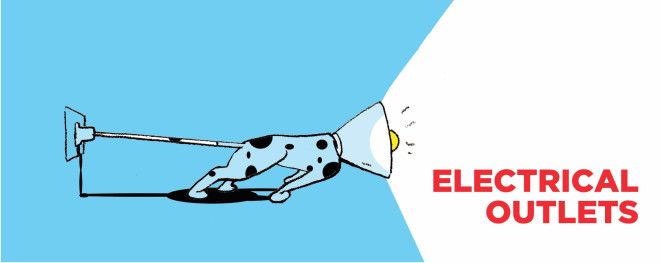
The Fear: If you stick a fork or a bobby pin in one of the sockets, you’ll be electrocuted.
The Reality: If you stick something in one of the sockets, you could get a nasty shock. The left slot is connected to the neutral wire, the right is connected to the hot one, and electricity flows from hot to neutral. Sticking something into either slot will disrupt the flow and send it into you. This happens on a surprisingly frequent basis: The National Fire Protection Association (NFPA) reports that 5,500 people went to the emergency room in 2015 with injuries from outlets. If you have newer outlets, they’re safer. The National Electrical Code requires new kitchen countertop outlets (and some others) to be ground fault circuit interrupter (GFCI) outlets, which quickly shut the current off if there’s an imbalance—because some of the current is leaking into you. But you may still get zapped.
Will It Kill You? It might. A jolt from a standard 120-volt outlet could trigger cardiac arrest.
Toasters

The Fear: Fishing bread out of the toaster with silverware might electrocute you.
The Reality: While not many people are electrocuted by small appliances (the Consumer Product Safety Commission estimates seven deaths a year, on average), it’s still a bad idea to stick anything besides bread into a toaster, according to the NFPA. Even if you unplug it, you could damage the heating element, which could shock you or start a fire the next time you make toast.
Will It Kill You? The chances are pretty remote. You largely risk a shock or burn.
Teflon pans

The Fear: Bits of Teflon from scratched pans will poison you.
The Reality: The American Cancer Society says there are no known risks in eating food cooked in Teflon pans. But you do need to worry about letting the pan get too hot. The plastics used in Teflon, called fluoropolymers, begin to break down at 500°F. At around 660°F, they release at least six toxic gases. Breathing in the released fumes can cause respiratory problems and flu-like illness.
Will It Kill You? Eat your eggs. You’ll be fine.
Small appliances around water
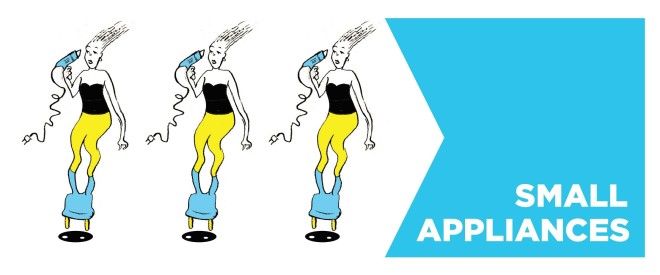
The Fear: If you plug in an appliance while your hands are wet, moisture will transfer the current from the plug to you.
The Reality: Since water conducts electricity extremely well and electric currents flow where there is the least resistance, they will usually go through that water—and into you—if the opportunity presents itself. Your body is more likely to resist electrical current if your skin is dry.
Will It Kill You? It could. If your hands are wet when you plug in your iron, you might get a shock. And if your whole body is wet, yes, you could die from a fatal shock to your heart.
Silica gel packets
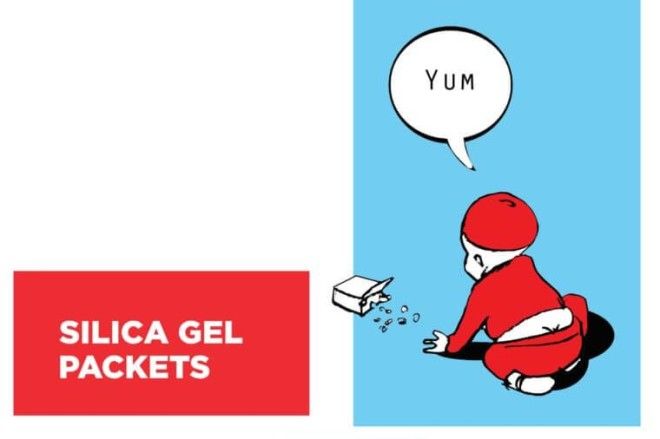
The Fear: The gel packs in shipping containers all say “Do not eat,” so they must be deadly.
The Reality: The American Association of Poison Control Centers documented 33,705 incidents of people eating silica in 2010, nearly 90 percent of them involving children under six. But none died from poisoning, because silica is chemically inert and nontoxic. The real danger is from choking on the packets.
Will It Kill You? No, but keep the packets away from young children.
Microwave ovens
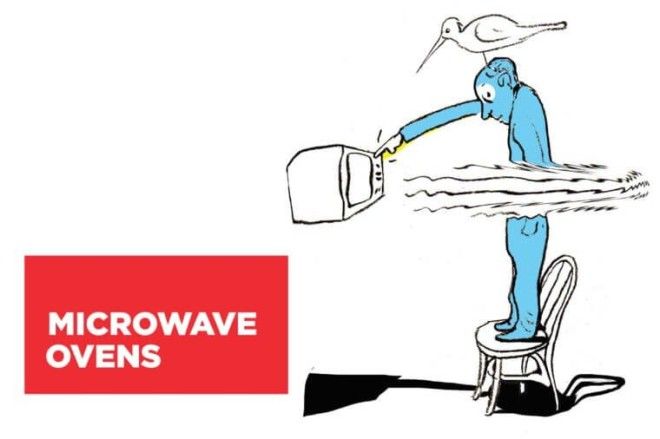
The Fear: Microwaves emit radiation that can cause cancer.
The Reality: There are two types of radiation. Ionizing radiation, the kind that’s emitted after a nuclear explosion, is the bad stuff. Microwave ovens emit nonionizing radiation, a safer kind, and at a level low enough to comply with safety standards. Microwaves operate at about three gigahertz, which is fairly low on the electromagnetic spectrum.
Will It Kill You? No. Go ahead and hover while you wait for that Hot Pocket.
Power lines
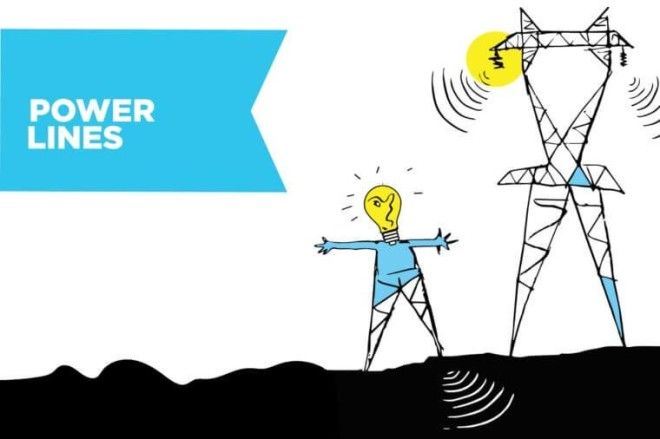
The Fear: The electromagnetic fields around electric power lines can give you cancer.
The Reality: A 1979 study found that the incidence of childhood leukemia was higher in Denver neighborhoods near high-voltage power lines. But more recent studies show no such correlation. Stepping on a downed live power line is the real threat—otherwise, you’re fine. The electromagnetic waves given off are the safer, nonionizing kind and are at an extremely low frequency.
Will It Kill You? No. Power lines are worse for property values than for your health.
Cell phones

The Fear: Radiation from your phone might cause brain cancer.
The Reality: The good news is that cell phones, like microwave ovens, give off nonionizing radiation—the safer kind. Your phone gives off about two gigahertz of radiation per second, less than a microwave oven. But a few studies have shown increased risk of brain cancer in heavy cell phone users.
Will It Kill You? Probably not. But research is ongoing.
Gasoline cans
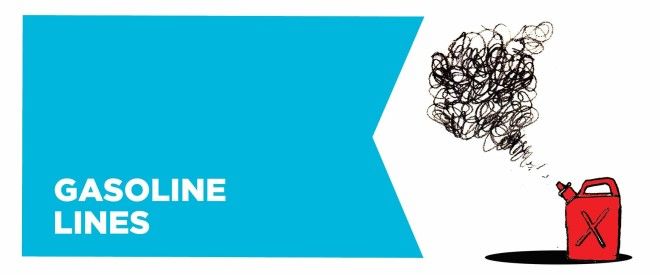
The Fear: The container could allow the gas to escape and connect with static electricity, causing a spark.
The Reality: New fuel containers must have flame-arresting screens that prevent heat from getting in, as well as spring-closing lids and spout covers to prevent spillage. (Note: Your old milk jug has none of those things.) The new containers also present little chance of creating a spark, even though the Occupational Safety and Health Administration (OSHA) warns that static electricity can build up as a result of the gas can sliding around your trunk or truck bed during your travels. Between 2010 and 2016, the Petroleum Equipment Institute, which tracks such things, had no reported incidents of fires caused by static-electric discharge.
Will It Kill You? Not if you’re using a proper can. But OSHA recommends that you take it out of your vehicle and set it on the ground before slowly filling it.
Plastic food containers
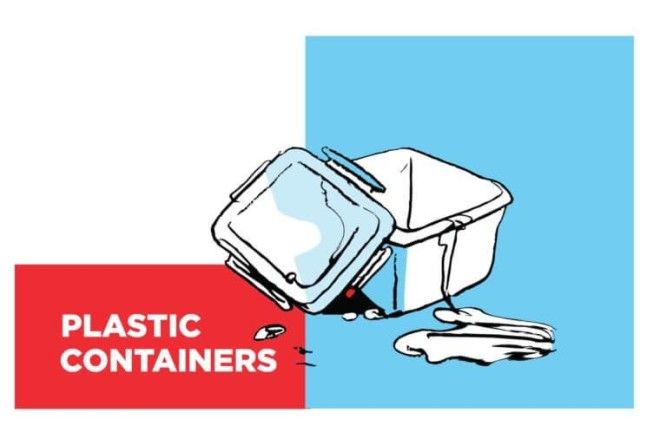
The Fear: Microwaves pull chemicals out of plastic and allow your food to absorb them.
The Reality: Bisphenol A (BPA), a chemical found in hard, clear plastic takeout and food-storage containers, does leach into your food when microwaved. Although studies have linked it with asthma, diabetes, cardiovascular disease, and reproductive problems, among others, the FDA maintains that the amount of BPA in everyday plastics is safe.
Will It Kill You? No. But you’re better off using a nonplastic (glass or ceramic) dish labeled “microwave safe.”

